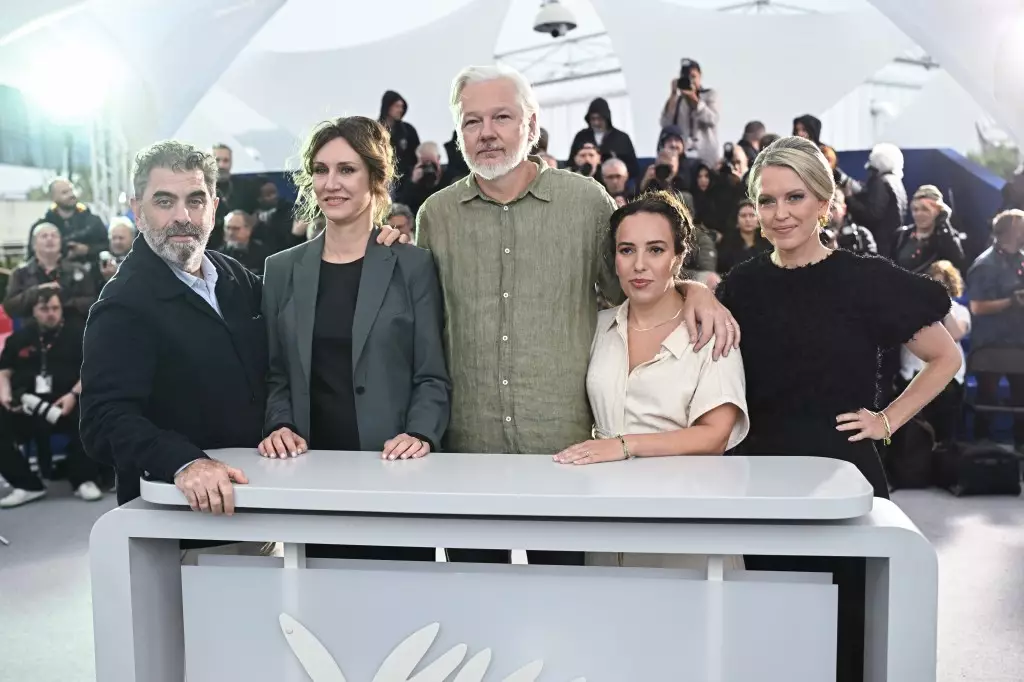For well over five years, the whistleblower platform WikiLeaks, created by Julian Assange, has refrained from sharing original documents, marking a significant period of silence that raises concerns about the state of transparency in democracy. This absence is not merely a reflection of organizational choices but signals a broader, more alarming trend wherein governments succeed in suppressing dissent and curtailing the flow of information that is vital to an informed public. Filmmaker Eugene Jarecki highlights this concerning reality in his documentary, *The Six Billion Dollar Man*, which investigates the full extent of efforts by various U.S. administrations to stifle both Assange and the ideals that WikiLeaks embodies.
Jarecki’s film sheds light on the staggering amount of resources—approximately $6 billion—allegedly expended by the U.S. government to dismantle Assange and his network. This figure, somewhat startling in its magnitude, underscores a narrative not just of financial investment but of philosophical warfare: the lengths to which powerful entities will go to enforce their will and preserve their secrets. Legal fees and additional prosecutorial expenses represent only a fraction of this expenditure; much of it manifests in less obvious forms, reflecting a broader strategy of coercion embedded in international diplomacy and finance.
The Costs of Coercion
To decipher how such a monumental sum was calculated, one must look beyond the courtroom battlegrounds to the geopolitical maneuvers that define modern power plays. Jarecki outlines how a significant portion of the financial efforts was tied to a loan arrangement between the Trump administration and Ecuador, which was enticingly poised to exchange its cooperation—specifically the extradition of Assange—for crucial financial assistance from the International Monetary Fund. This revelation paints a troubling portrait of U.S. foreign policy maneuverings resembling those employed in past interventions in democracies around the globe, bedecked as they are in the malleable cloak of humanitarian aid.
The motivations driving these maneuvers are not rooted in a desire to uphold justice but rather to curtail potential threats to the status quo. While nations espouse values of democracy, transparency, and freedom of speech, the stark reality is that these ideals oftentimes serve as thin veils over self-interest. Assange’s refuge in the Ecuadorian Embassy symbolizes an intersection of global politics and the quest for accountability and truth, raising questions about who truly controls narratives and who ultimately benefits from the unraveling of societies steeped in secrecy.
The Fate of a Whistleblower
The crux of Jarecki’s narrative is not just the financial and legal machinations aimed at suppressing Assange but also the broader implications for society at large. In 2019, the Ecuadorian government, succumbing to external pressures, withdrew Assange’s asylum, leading to his arrest and subsequent five-year imprisonment in the U.K. as he fought an extradition battle. Ultimately, Assange made a calculated choice to strike a plea deal that sentenced him to time served in exchange for pleading guilty to charges concerning the dissemination of classified information, a resolution crafted under duress rather than through the lens of justice.
This entire saga serves as a cautionary tale about the vulnerabilities inherent in the systems constructed to safeguard democratic ideals. Assange’s recent premiere at Cannes, in conjunction with the release of Jarecki’s documentary, becomes emblematic of a triumph not just for Assange as an individual but for the ongoing fight for transparency. The film’s recognition—winning a Special Jury Prize—is a testament to the power of storytelling in catalyzing public discourse surrounding issues that corporations and governments would prefer remain unexamined.
The Turning Tide of Public Opinion
As public awareness around issues of government secrecy continues to grow, filmmakers like Jarecki find themselves in the vanguard of a movement challenging the norms of silence. While *The Six Billion Dollar Man* currently lacks a U.S. distribution deal, Jarecki remains optimistic, noting the hunger among American distributors for narratives that resonate with audiences yearning for change. The irony here is palpable: a film critiquing the silencing of dissent could, in its essence, ignite a broader dialogue around the need for accountability in leadership.
In a world where whistleblowers are often vilified rather than celebrated, the dialogue around transparency is more crucial than ever. Jarecki’s documentary does not just document events; it raises essential questions about the price societies are willing to pay for silence and the moral obligations to uphold democratic tenets even in the face of unfathomable pressure. With Assange’s story becoming increasingly relevant, it urges viewers to confront uncomfortable truths about power, accountability, and the cost of choosing transparency over complacency.
